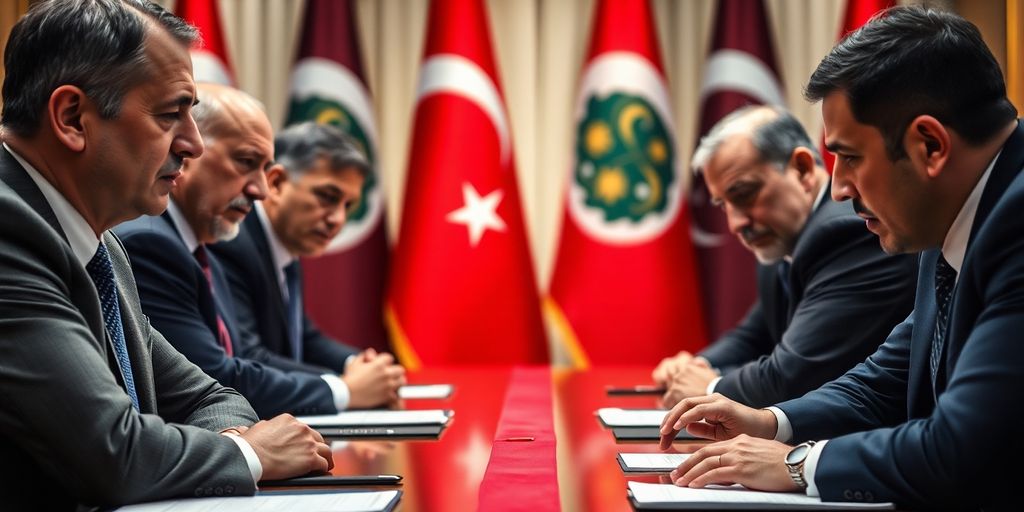In a recent statement, Turkish President Recep Tayyip Erdogan firmly dismissed calls from Kurdish groups for a decentralized government structure in Syria, labeling such demands as unrealistic and a threat to regional stability. Erdogan emphasized Turkey’s commitment to maintaining Syria’s territorial integrity and unity, rejecting any initiatives that could undermine the central government in Damascus.
Key Takeaways
- Erdogan described Kurdish demands for decentralization as a "pipe dream."
- Turkey insists on a unified Syrian state, opposing any imposed structures along its border.
- Erdogan criticized Israeli airstrikes in Syria, calling them provocations.
- Turkey supports the reconstruction of Syria while urging inclusive dialogue among all groups.
Erdogan’s Firm Stance on Decentralization
During a press conference, Erdogan stated that the idea of a federal structure in Syria is not grounded in reality. He advised Kurdish leaders to focus on decisions that promote stability rather than pursuing what he termed as dreams of federalism. Erdogan’s comments came after a meeting among various Kurdish factions in Syria, where they expressed a desire for a decentralized governance model.
Erdogan reiterated Turkey’s position, stating, "We will not allow any forced structure right beyond our borders other than a unified Syria." This statement underscores Turkey’s long-standing concerns about Kurdish autonomy, which it views as a potential threat due to links with the PKK, a designated terrorist organization in Turkey.
Turkey’s Support for Syrian Unity
Turkey has been a significant player in the Syrian conflict, initially supporting rebel groups against former President Bashar al-Assad. However, with the recent changes in Syria’s political landscape, including the rise of Islamist leaders, Turkey has shifted its focus to stabilizing the country and supporting its reconstruction efforts.
Erdogan emphasized that Turkey will not accept any initiatives that threaten Syria’s sovereignty or territorial integrity. He stated, "We cannot consent to the disintegration of Syria’s territorial integrity and the deterioration of its unitary structure under any guise."
Criticism of Israeli Actions
In addition to addressing Kurdish demands, Erdogan condemned recent Israeli airstrikes in Syria, labeling them as unacceptable provocations that could destabilize the region. He called on the international community to contribute to Syria’s security and stability, urging Israel to cease its aerial operations that undermine these efforts.
Call for Inclusive Dialogue
Erdogan also highlighted the importance of inclusive dialogue among all Syrian groups to facilitate the country’s reconstruction. He expressed Turkey’s readiness to support Syria in rebuilding and emphasized that any constitutional process must ensure the rights and freedoms of all ethnic and religious groups.
In conclusion, Erdogan’s rejection of Kurdish calls for decentralization reflects Turkey’s broader strategy to maintain control over its borders and prevent any potential threats from Kurdish militias. As the situation in Syria continues to evolve, Turkey remains committed to supporting a unified and stable Syrian state while navigating complex regional dynamics.
Sources
- Erdogan calls federal system in Syria a ‘pipe dream,’ reaffirms Türkiye’s support for unity, Türkiye Today.
- Turkey calls on Israel to stop airstrikes on Syria, The Times of Israel.
- Turkey stresses opposition to decentralisation in Syria, Reuters.
- Turkey’s Erdogan dismisses Kurdish calls for Syria decentralisation as a "dream", Reuters.
- Türkiye rejects autonomy demands in Syria following Qamishli conference, Türkiye Today.






